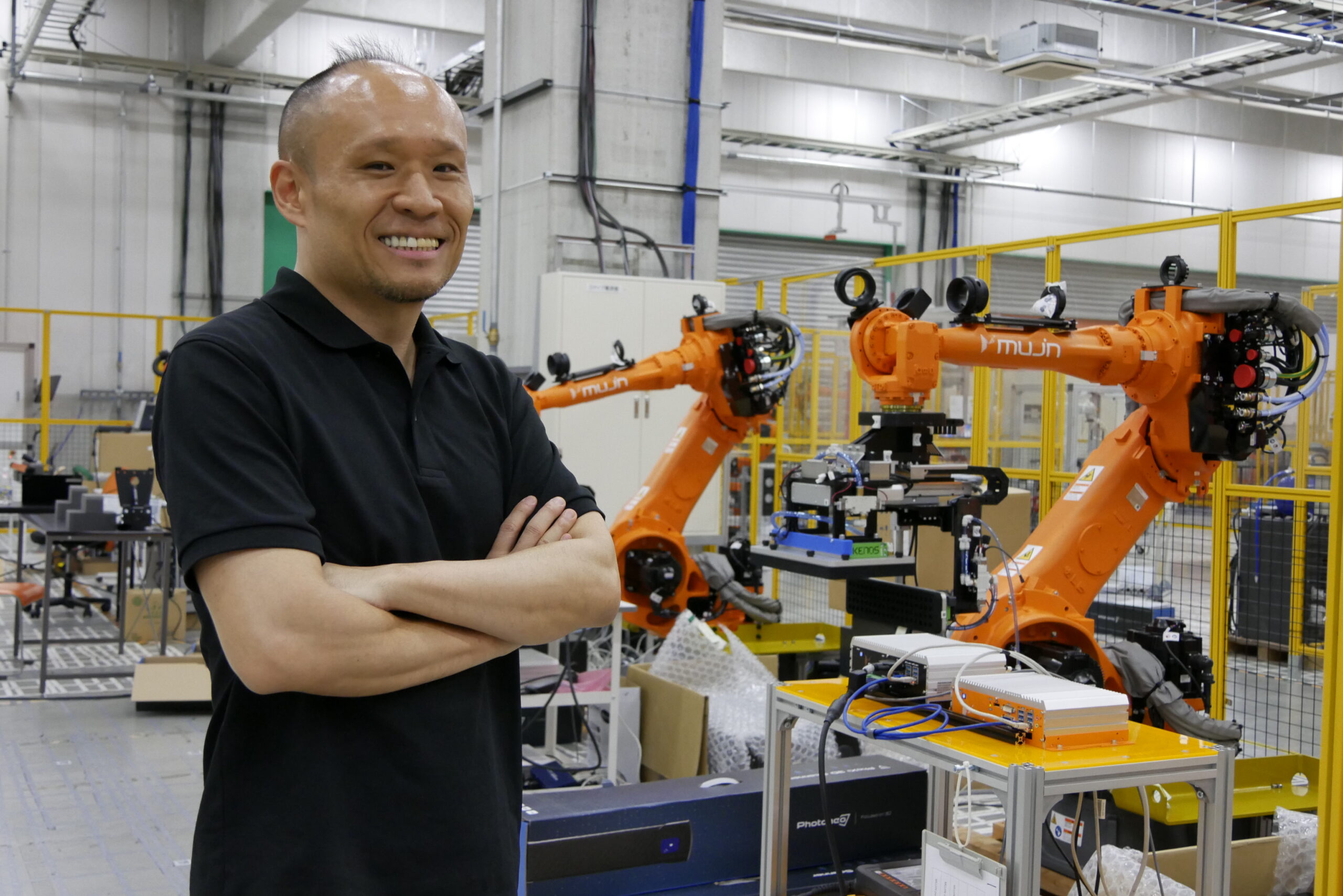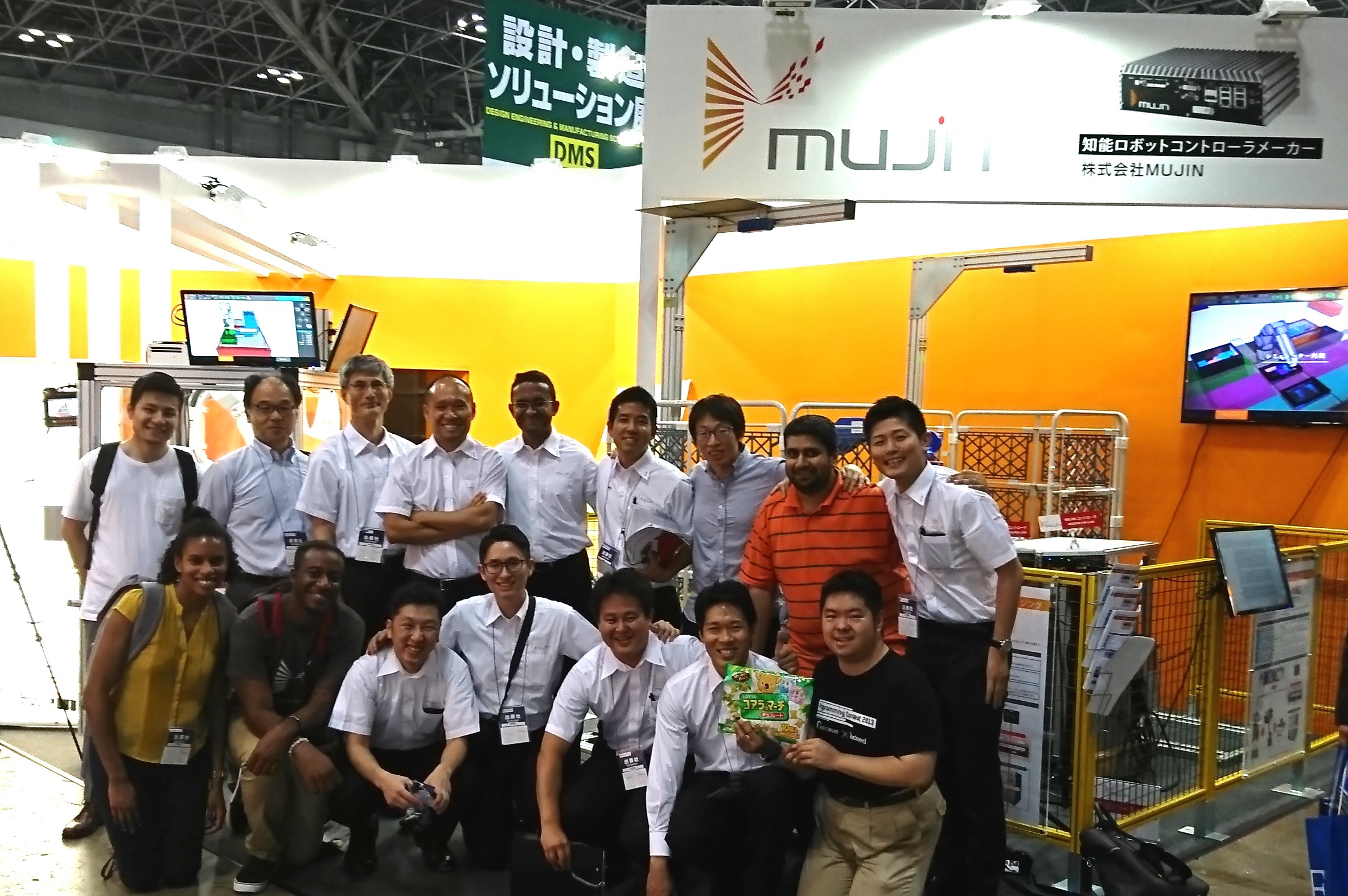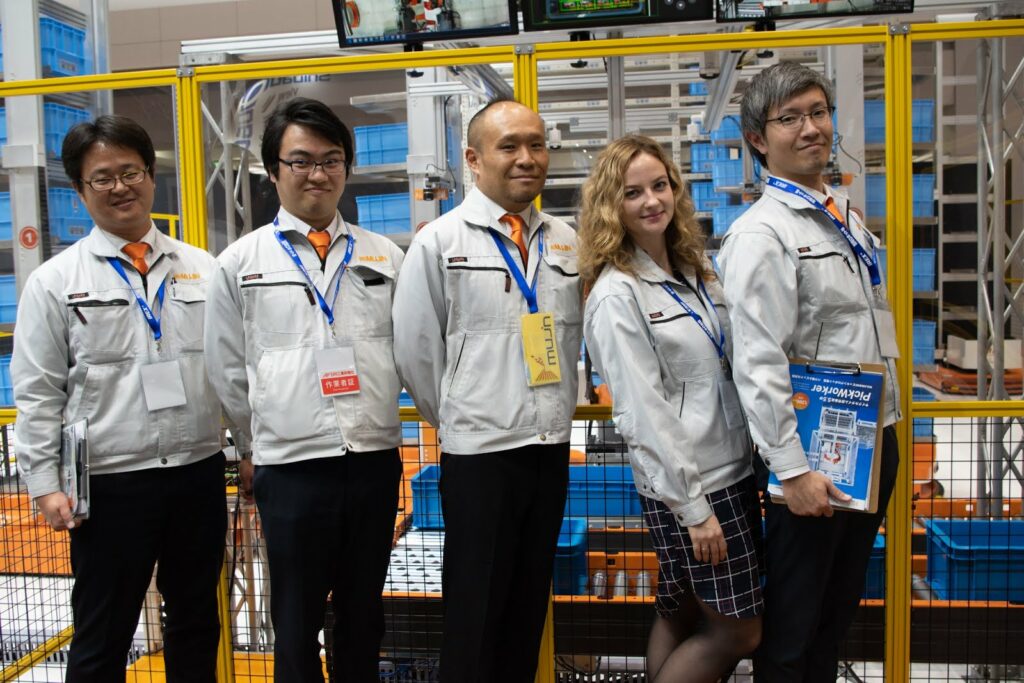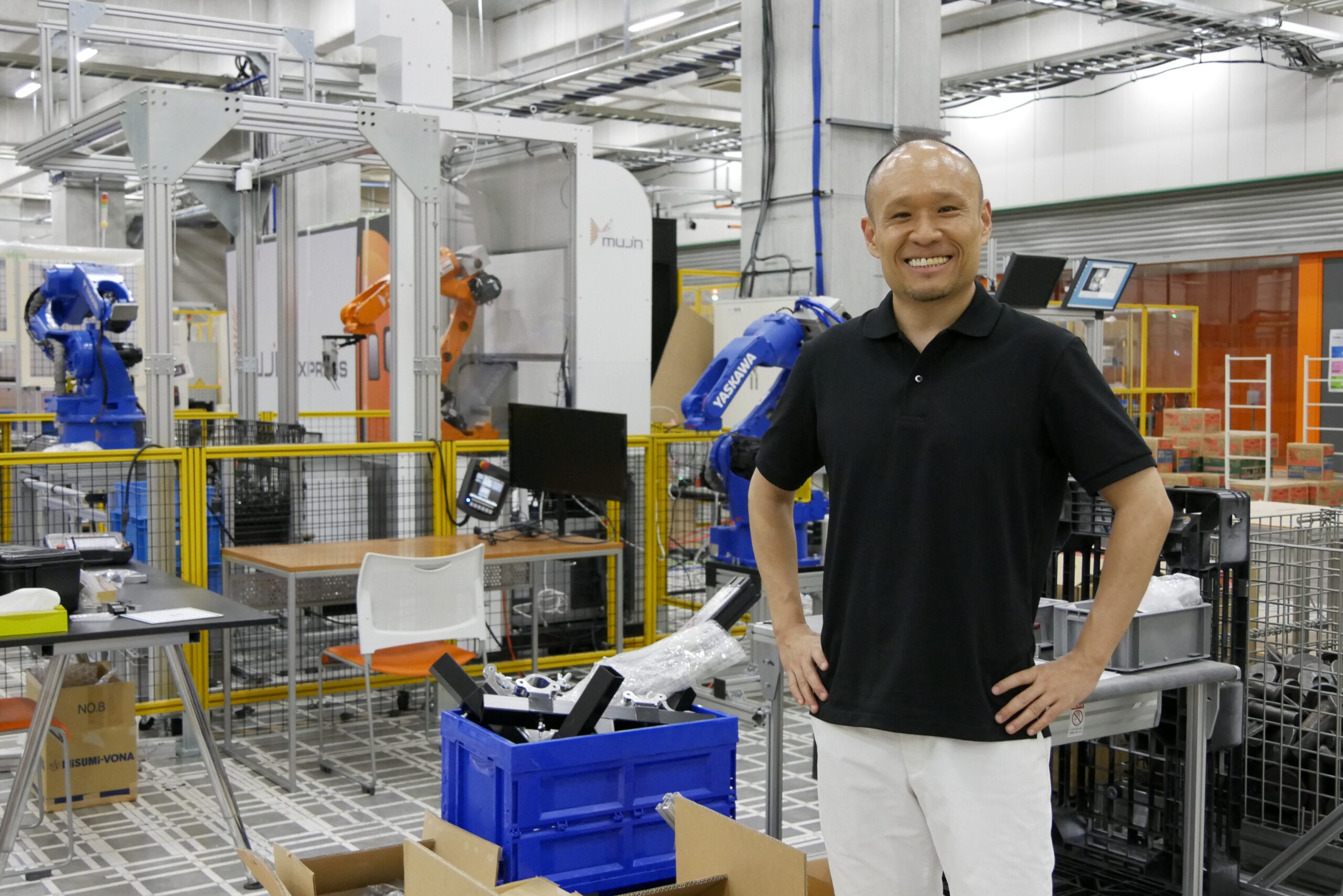For the “Mujinians Voice” series, this time we would like to introduce Hiro, who is a lead system integration engineer/ project manager.
We have many members who joined Mujin after working in several countries in the past. We interviewed one of them, Hiro, to find out what kind of experience he gained overseas and how it relates to his work at Mujin.

ーー Could you tell us about your career?
After graduating from my university, I joined a major chemical manufacturer and started my career as an engineer involved in production technology, maintenance of manufacturing equipment, and product designing.
I had lived in the UK before and had always wanted to work over the world, and it became a reality sooner than I thought.
When I was in my first year of working, my company decided to set up a design department in the Philippines branch office in order to outsource some of the design work. I was fortunate enough to be selected to be a member for launching the department and moved there in my second year.
In setting up the new department, I was forced to be involved in all sorts of areas, not just engineering, but such as communication with Headquarters, administration, recruitment, sales engineering and sales itself. When I tried it, I felt that I would be better suited to work in sales and other fields with an engineering background than be a pure engineer. Then, I decided to enter a business school there and obtained an MBA.
Around when I turned 30 years old, I changed my job to a Japanese trading company as a vice president of the US office. I was mainly in charge of sales engineering, but also involved in a wide range of fields including accounting, legal affairs, import/export.
Then, I move to the Netherlands to oversee the European market for a robot manufacturer. In the middle, I moved to Germany and also visited the UK every month as a board member of a subsidiary there. Later, I was transferred to the US branch office and was in charge there.
As my fourth company, I moved to a major electronics manufacturer and worked at the European headquarters in the Netherlands and the headquarters in Japan.
ーー You have been in charge of overseas offices of large companies all over the world. How did you end up at Mujin?
When I was working in Japan, I had a chance to meet a friend from my business school who was working at a venture capital firm. When I mentioned to her that most startup companies were likely in the retail, IT or e-commerce field, she told me that there was an unusual startup in the manufacturing field, and that was Mujin.
I saw the video of robots automating bin picking on Mujin’s website, and it didn’t catch my attention that much at that time. But after a week or two, I started wondering, “how come they could do that?”
Since I was previously working for a robotics company, I realized that it was very difficult to automate bin picking. I couldn’t help but wonder how they were accomplishing this technically, so I contacted Mujin and was invited to their office.
On a Saturday in May 2016, I visited the office in Tokyo, and Rosen, the CTO, showed me around. Issei, the CEO, also came and we talked for about 4 hours. At that time, Mujin was mainly focusing on solutions for the manufacturing industry, and had just started logistics solutions too. They talked about their vision for the future, and I realized that even if I took it with a grain of salt, I could see a lot of potentials and thought the company would definitely grow. Before visiting their office, I was not thinking about changing my job at all, but after seeing the great potential of Mujin, my interest was suddenly piqued. I took interviews in August and decided to join the company.
ーー What kind of work have you been doing since joining Mujin?
When I joined, the company had around 30 employees. I had worked for large companies till then, so this was my first time working for such a small company. The engineers who made up 80-90% of the company were the top technical group gathered from around the world, and that is the major source of Mujin’s strength. I was thinking that I had to create an environment in which they could work efficiently and exert their maximum strength.

Up to that point, Issei was the only salesperson. I joined as a sales engineer originally, conducting demonstrations and explaining the technology. But, as the company went through different phases, my responsibilities also changed and I have been involved in various fields.
As system integration work increased, I started to take on more integration-related tasks. And as the number of large logistics projects increased, the role of project manager also became necessary. So, together with other members, I also created the structure of the project management department. Now, as a lead system integration engineer and project manager, I am involved in both fields.
ーー How do you feel about Mujin?
I think the strength of Mujin has been that everyone understands the goal and direction of the company. Having a common understanding of the same goal enables us to quickly repeat trial and error.
When I was at a large company, I was told to have a sense of ownership, but it wasn’t until I joined Mujin, where everyone is looking in the same direction and members are given discretion, that I realized that it is only by being in this kind of environment that you can have a true sense of ownership.
In order to maintain this culture even as the company grows, I believe that the team leads must take the initiative in embodying and spreading it.

ーー How is the experience of working overseas helpful at Mujin?
When you are in an overseas branch office, especially if you are launching a new office or department from zero, you have more opportunities to be involved in a wide range of tasks and collaborate with other departments, not just in your own area of expertise. Being able to get a sense of what other members are doing and how you should collaborate with them is very useful in a startup company like Mujin. As a company is growing rapidly and its business domain is expanding, new tasks emerge one after another and sometimes there is no clear department in charge of them. Each person must be aware of the situation and take initiative in collaborating with other departments, which is similar to managing an overseas branch.
At Mujin, those who are capable are given more and more discretion. People who have not been given a lot of discretion in the past may be at a loss first as to how to make the most of it. On the other hand, I think it is very comfortable for those who have worked overseas where they were given a lot of discretion.
In addition, Mujin’s founders are Japanese and American. Half of the employees are foreign nationals, and English is commonly used. It would be comfortable for those who have worked or lived outside of Japan.
ーー What do you want to do in the future?
What I find amazing about the founders, Rosen and Issei, is that they have been steadily realizing the future vision that they talked about six years ago. They commonly have the ability to execute without running away as one of Mujin’s core values says, “Never give up, never surrender”.
I think Mujin’s stage has changed in a year. I believe that we’ve made our presence to a certain extent now, and we’re now deciding a direction to scale up.
When I was working for a robot manufacturer in the past, we had a project to renew one old robot in the distribution center of a retail chain in the Netherlands. There were 25 lanes of shipping lines, and only one of them had a robot in it. The remaining 24 lanes could not be automated and were operated by humans because of the wide range of products.
I still have that scene in my head and believe that Mujin’s technology should be able to automate all those 24 lanes. If we could standardize the automation of such a large warehouse, I think that would be the start point for Mujin and me. I would also like to contribute to building a strong organization that can operate properly for the global market.

ーー Thank you, Hiro!
